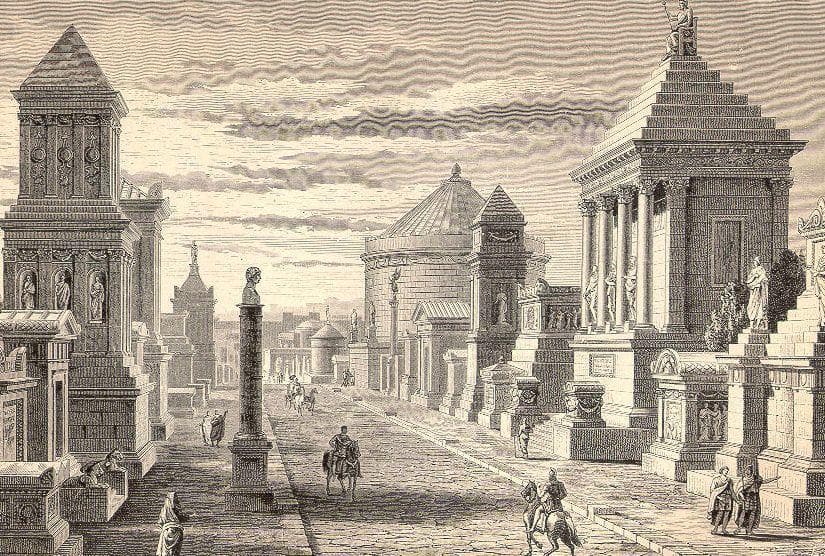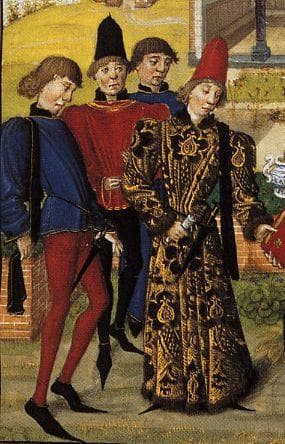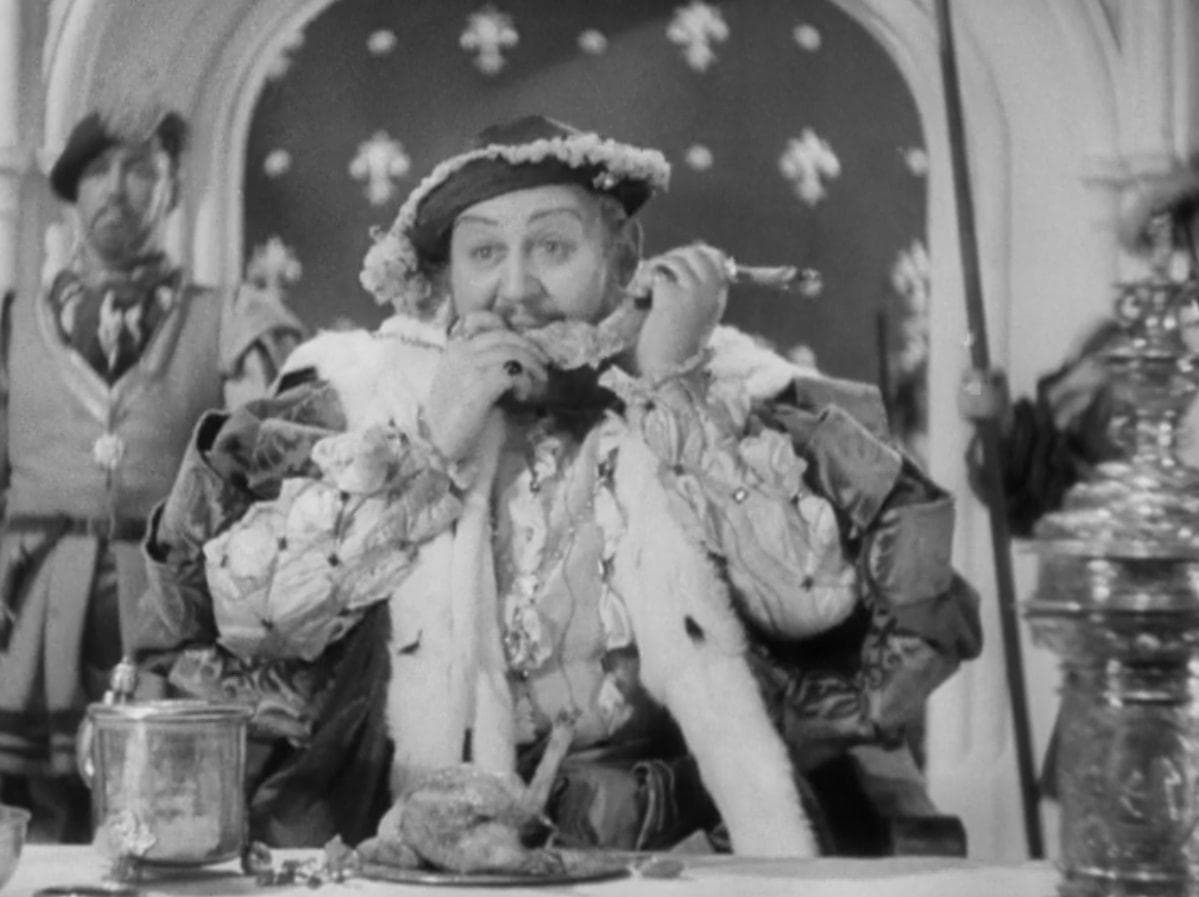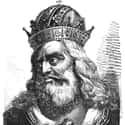-
(#8) Charles V, Holy Roman Emperor
- Dec. at 58 (1500-1558)
In 2006, scientists learned Charles V, Holy Roman Emperor, suffered from severe gout for almost four decades. After analyzing his remains, they discovered excessive levels of uric acid. Charles V's gout was so extreme that his finger joints were ruined by gouty tophi, growths of uric acid crystals.
Charles V documented his gout during a trip to Tunisia in the mid-1530s. As his gout worsened, his pain drove him to lash out at his rivals, including the Catholic Church. In December 1556, he had a gout flair-up "in his knees and shoulders... for some days he was entirely deprived of the use of his right arm, and could neither raise a cup to his lips nor wipe his mouth." This did not hinder his appetite, however. He ate a large number of sausages and olives sent to him as a gift.
In the final years of Charles's life, his "chief annoyance was the state of his fingers, which were so much swollen and disabled by gout, that he remarked, on receiving from the Duchess of Frais a present of a chased silver sauce pan and a packet of perfumed gloves, 'If she sends gloves, she had better also send hands to wear them on.'"
-
(#10) Alexander the Great
- Dec. at 33 (355 BC-322 BC)
Little is known about the specifics of the maladies of many historical leaders. Alexander the Great, who is believed to have suffered from gout, experienced symptoms in line with Hippocrates's description of the illness from the 5th century BCE. Hippocrates called it "the unwalkable disease." According to the ancient Greek physician, "It lasts long and becomes chronic... The pain may remain fixed in the great toes... it is not fatal."
Historians claim Alexander the Great lived a life of moderation and never ate or drank in excess; however, there is some indication that Alexander drank heavily on occasion.
-
(#5) Napoleon III
- Dec. at 65 (1808-1873)
Napoleon III, nephew of Napoleon Bonaparte and President of France from 1848 to 1852, later seized control of the government and established himself as emperor until his death in 1873. By the mid-1850s, Napoleon III suffered from numerous health problems including bladder infections and stones, arthritis, and gout.
He was obese, experienced pain his legs, suffered from mental anguish, had odd fainting spells, and was told by doctors to rest and change his diet. Given Napoleon III's weakened condition caused by "an exhausted nervous system and diseased organs," doctors cautioned the political impact could be "fearful."
-
(#9) Anne, Queen of Great Britain
- Dec. at 49 (1665-1714)
Anne, Queen of Great Britain, was the last of the Stuart monarchs, ruling from 1702 to 1714. Anne never produced an heir, although she had 17 pregnancies that resulted in five live births. None of her children survived past the age of 11.
Her reproductive struggles characterized her early life, but by the time Anne became queen at the age of 37, her weight had increased significantly, contributing to her gout. It became so severe that she was often unable to walk. Anne's use of wheelchairs and walking sticks led one observer to comment, "Nature seems to be inverted when a poor infirm woman becomes one of the rulers of the world."
There are numerous references to "fits of gout" in The History of the Life & Reign of Queen Anne, which includes official letters and papers related to Queen Anne's tenure. Anne's gout affected her appearances before Parliament, and those closest to her struggled "to conceal the true state of the Queen's health." On one occasion in 1712, Anne's gout cleared up "so easy that she was able to hold a Cabinet-Council" and tend to her duties without anyone suspecting her chronic pain.
-
(#3) Benjamin Franklin
- Dec. at 84 (1706-1790)
Benjamin Franklin had a terrible case of gout, but he wasn't the only American colonial to suffer from the affliction during the 18th century. William Pitt, for example, also struggled with the disease. Franklin and Pitt were said to have discussed gout, but it's Franklin's conversation with gout, itself, that gives us insight into the nature of his affliction.
In Dialogue Between Franklin and the Gout, written in 1780, Franklin asks Gout what he did to deserve the aches and pains brought on by the disease. Gout responds that it was the result of excessive eating, drinking, and other indulgences. Gout chides Franklin for his sedentary lifestyle, asking him why he eats "an inordinate breakfast, four dishes of tea, with cream, and one or two buttered toasts, with slices of hung beef" only to "sit down to write at your desk, or converse with persons who apply to you on business... without any kind of bodily exercise."
Franklin tries to defend his use of a carriage, but Gout responds that he should burn it or offer it to "the poor peasants, who work in the vineyards and grounds about the villages... bent and perhaps crippled by weight of years, and too long and too great labor."
In the end, Gout and Franklin agree that physicians, or "quacks," are not the answer and Franklin promises to "take exercise daily, and live temperately." Gout tells Franklin it's only a matter of time before he picks up his "old habits," cautioning Franklin about a return visit "at a proper time and place."
-
(#14) Charlemagne
Charlemagne, King of the Franks and Holy Roman Emperor, united large sections of Western and Central Europe during the 8th century, all while suffering from gout. According to his biographer Einhard, Charlemagne's gout was problematic, but the emperor was at odds with his physicians after "they urged him to give up roasts, to which he was accustomed, and to eat boiled meat instead." Apparently boiled meat was something Charlemagne thought was "particularly odious."
Charlemagne didn't stop eating meat and his "daily meal was served in four courses only, exclusive of the roast, which the hunters used to bring in on spits, and which he ate with more pleasure than any other food." His health may have suffered, however, and he went lame in one foot later in life.
Charlemagne went swimming at the hot springs near his palace at Aachen to ease his gout pain. Einhard claimed Charlemagne constantly exercised "both by riding and hunting," and enjoyed "the vapour of naturally hot waters" with his sons, nobles, friends, and bodyguards.
New Random Displays Display All By Ranking
About This Tool
Gout is a disease with a long history, once called "the disease of kings". Many historical figures have suffered from gout, and some have even been tortured to death, including many emperors and celebrities, such as Alexander the Great, Frederick the Great, Goethe, Leonardo da Vinci. In France in the first half of the 13th century, more than a dozen kings, such as Louis VII and Louis XVI, suffered from gout.
In the past, privileged people had more opportunities to enjoy food and excessive drinking, so they were more likely to get gout than ordinary people. The incidence of gout is closely related to diet and lifestyle. The random tool lists 14 famous historical leaders who suffered gout for a long time.
Our data comes from Ranker, If you want to participate in the ranking of items displayed on this page, please click here.















